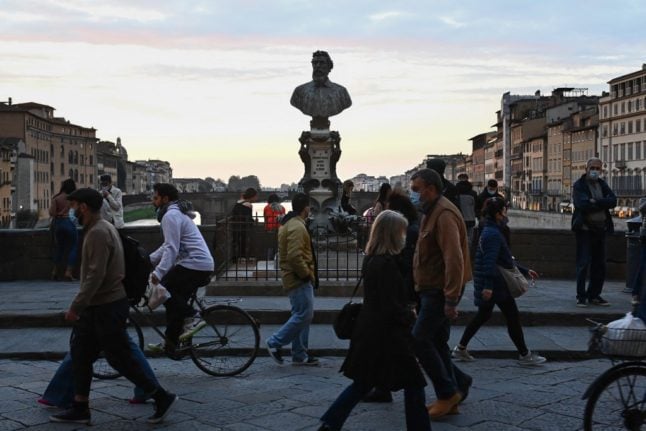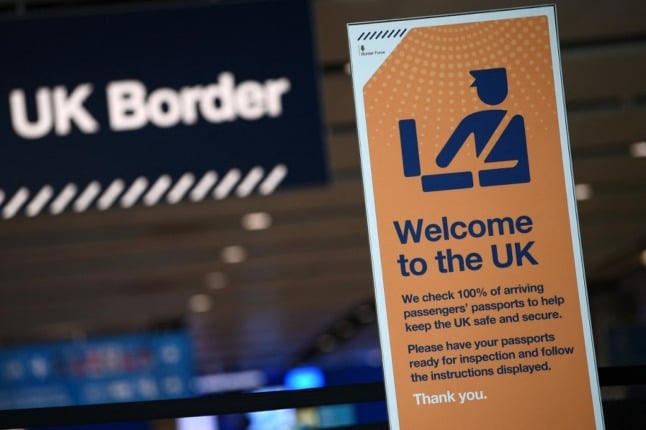In recent weeks inaccurate media reports around the new rules for UK nationals living in and travelling to Europe may have caused confusion. So the British Embassy Rome wanted to bust some myths about what our new relationship with the European Union means for you.
Please continue to refer to the Living in Italy page on gov.uk as well as the Italy Travel Advice.
I arrived in Italy two years ago and I am a legal resident. Now the transition period has ended I’ve lost my right to access healthcare and benefits as I was doing before.
False: If you were living lawfully in Italy before January 1st 2021 your rights are protected by the UK-EU Withdrawal Agreement.
These rights are for life for as long as you remain a resident in Italy. Your rights include the right to access healthcare and benefits on the same basis as an Italian national.
My right to access benefits and services is only protected if I get the new Withdrawal Agreement biometric residency card (‘carta di soggiorno’) from my questura.
False: If you were legally living in Italy before January 1st 2021 your rights are protected by the Withdrawal Agreement for as long as you remain a resident in Italy. If you already hold an EU residency document from your local town hall (comune) this is evidence of your status.
However, you should now obtain the new carta di soggiorno from the questura as it is the best evidence of your rights under the Withdrawal Agreement. Check the Italian government’s vademecum on the new card for more information.
Remember, however, that if you are covered by the Withdrawal Agreement you cannot have your rights denied because you don’t hold the new carta di soggiorno.
READ ALSO:
- Italy issues first Brexit residence cards to British nationals
- ‘What I learned when I applied for the Brexit residence card for Brits in Italy’
- Why Brits in Italy are being urged to apply for the new biometric ID card now

I was settled in Italy before January 1st 2021. I need the new ‘attestazione di iscrizione anagrafica’ from my local town hall which was released last year before I can get the new ‘carta di soggiorno’ from my questura.
False: You do not need the attestazione di iscrizione anagrafica issued according to Article 18.4 of the Withdrawal Agreement to get the new biometric residency card (carta di soggiorno). You can provide your current EU residency document as evidence of living in Italy to your local questura.
Or you can complete a self-declaration form confirming your registered residency status. You can find a template of the form on our Living in Italy guide.
Book an appointment online with your local questura for your carta di soggiorno.
I was living in Italy before January 1st 2021 but I never registered. So I’m not covered by the Withdrawal Agreement and I’ll need to leave Italy immediately.
False: If you were lawfully living in Italy before January 1st 2021 but you never registered you are eligible to apply for the new carta di soggiorno issued under the Withdrawal Agreement. You should get in touch with your local questura to book an appointment. Once you’ve obtained the new carta di soggiorno you should register your residency with your local town hall (comune).
READ ALSO:
- How British citizens in Italy are overcoming bureaucratic problems
- OPINION: Brits in Italy aren’t victims of a ‘hostile environment’ but a bureaucracy that wasn’t ready for Brexit
- ‘Negotiations ongoing’ on driving licence agreement between UK and Italy
If you started the residency registration process with the town hall in 2020 you should complete this with them before requesting the new carta di soggiorno with your local questura.
In both cases, you should check with the questura what documentation you need to provide. Check the Italian government’s vademecum on the new card for more information.
I’m a resident here and I have an EU residency document. I want to visit the UK for two weeks – when I return I guess my passport will be stamped.
False: If you were lawfully living in Italy before January 1st 2021 you are covered by the Withdrawal Agreement. As such you should not have your passport stamped at the border when returning to Italy.
READ ALSO: ‘A stamp in a British passport does not put residency rights into question’
You should now obtain the new carta di soggiorno from your local questura. This is issued under the Withdrawal Agreement and is the clearest evidence of your rights in Italy. It will be a useful document to show at the border when returning from overseas. But if you don’t yet have one show your current EU residency document to avoid having your passport stamped or being questioned as to your reasons for travel.
If your passport is stamped in error it will have no impact on your rights in Italy.

I’m planning to move to Italy sometime in 2021 to settle. I should get the new ‘carta di soggiorno’ from the questura.
False: The new carta di soggiorno for UK nationals and their families is issued under the Withdrawal Agreement. To be eligible you’ll need to evidence that you were lawfully living in Italy before January 1st 2021.
If you are planning to move to Italy from January 1st 2021 you must meet the immigration requirements for non-EU nationals. You should contact the Italian Ministry of Foreign Affairs or the Italian Consulate in the UK for more information.
Make sure you also read our travel advice to understand any other entry requirements. You should also make sure you are aware of current rules on entry due to Covid-related travel restrictions.
I’m a UK national not covered by the Withdrawal Agreement so I will need a visa every time I come to Italy.
False: Foreign holidays are currently illegal out of the UK but there will be changes to the way we visit Europe when we are able to do so again. This also applies to people who have a second home in the EU but are normally resident in the UK.
You can still visit Italy without a visa for up to 90 days within any 180-day period. However, you might need a visa or work permit if you are planning to stay longer or if you are travelling for business purposes.
READ ALSO: What Brits need to know about visas for Italy
New passport validity rules mean you may need to renew your British passport earlier than expected as it may not be valid for travel, even if it is in date. Use our passport checker to find out and renew now if you need to.
To find out what other actions you may need to take before travelling to Europe, read our guidance for visiting Europe.
Remember, always read our travel advice for your destination before you travel. Take out comprehensive travel insurance that meets all your needs, including healthcare.
Find all The Local’s updates for UK nationals in our Dealing With Brexit section.



 Please whitelist us to continue reading.
Please whitelist us to continue reading.
Member comments